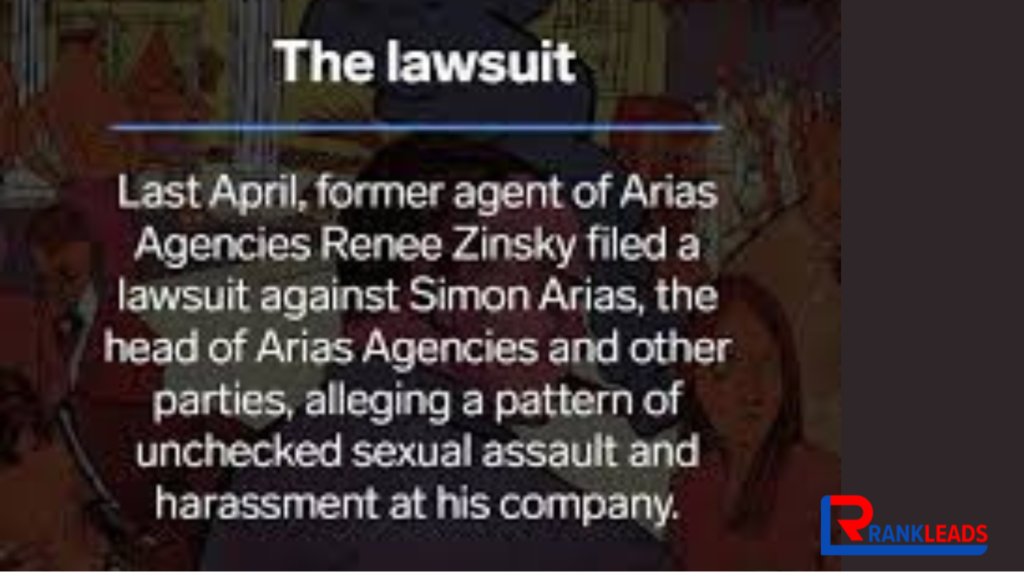In recent months, the Arias Agencies lawsuit has captured significant attention due to its controversial nature and the high-profile companies involved. This article delves deep into the details of the case, its background, the parties involved, and the potential legal implications. The Arias Agencies lawsuit highlights several legal and business issues that have far-reaching consequences for both the plaintiffs and defendants. By exploring the facts surrounding this case, we aim to provide clarity and a comprehensive understanding of the legal proceedings and their impact on the industry.
Understanding the Arias Agencies Lawsuit
The Arias Agencies lawsuit has become a focal point for many in the business and legal communities. At its core, the lawsuit involves claims of malpractice, contractual violations, and other serious allegations leveled against the Arias Agencies. These claims have sparked a larger conversation about corporate responsibility and the consequences of legal disputes between businesses.
The complaint alleges that Arias Agencies failed to honor their commitments, which resulted in significant financial loss and reputational damage to those involved. The lawsuit has raised critical questions about how agencies operate and what legal protections businesses and individuals have when entering into contracts.
What Led to the Arias Lawsuit?
The Arias Agencies lawsuit did not arise overnight. The roots of this legal battle go back to a series of contractual agreements that went wrong. Arias Agencies, which specializes in various services ranging from marketing to consulting, entered into business relationships with several clients. Over time, these agreements began to unravel, with several clients accusing the agency of breaching contract terms.
Some of the issues raised in the lawsuit include failure to deliver agreed-upon services, non-payment for services rendered, and, in some cases, accusations of fraud. These breaches of contract have ultimately resulted in the current legal dispute that is now making its way through the courts.

The Impact of the Arias Agencies Lawsuit on Businesses
One of the most significant outcomes of the Arias Agencies lawsuit is the disruption it has caused in the business community. This legal battle has brought to light some uncomfortable truths about the practices of certain agencies, particularly in industries that rely heavily on client relationships. The lawsuit has created uncertainty among other companies that were once clients of Arias Agencies, and it has led many to reconsider their ongoing business engagements.
The case also has wider implications for the industry, especially in terms of trust and transparency. Companies are now more cautious. When entering into contracts with agencies, fearing that they too might fall victim to similar legal issues. The Arias lawsuit serves as a cautionary tale, reminding businesses of the importance of clear contracts and due diligence when selecting partners.
Key Parties Involved in the Arias Agencies Lawsuit?
At the heart of the Arias Agencies lawsuit are the plaintiffs and the defendant. The plaintiffs, who are a group of businesses and individuals, have filed a formal complaint against the Arias Agencies. They claim that the agency’s failure to meet its contractual obligations has caused them significant financial loss and damage to their reputation.
On the other side, Arias Agencies has vehemently denied any wrongdoing. They argue that any issues that arose during the course of their business relationships were either unavoidable or the result of miscommunication.
The legal battle is still ongoing, with both sides presenting conflicting evidence and arguments.

Key Allegations in the Arias Agencies Lawsuit
The allegations in the Arias Agencies lawsuit are broad and encompass several key issues. The plaintiffs have accused the agency of failing to deliver on its promises, which were outlined in various contracts. These accusations include:
- Breach of Contract: The plaintiffs allege that Arias Agencies did not fulfill their contractual obligations, leading to financial and operational setbacks.
- Fraudulent Practices: Some plaintiffs claim that they were misled about the nature of the services being provided and the costs involved.
- Failure to Meet Deadlines: A significant portion of the lawsuit revolves around the agency’s failure to meet deadlines, which disrupted the operations of the businesses involved.
How Is the Arias Lawsuit Affecting the Legal Landscape?
The case has shed light on the importance of clear, enforceable contracts and the role of legal counsel in preventing misunderstandings. This lawsuit is likely to prompt businesses to review their contracts more carefully and ensure that they have appropriate legal protections in place.
The case is also drawing attention to the need for transparency in business practices. With the rise of litigation in the business world, companies are increasingly under pressure to operate ethically and honor their commitments. The Arias lawsuit serves as a warning that failing to do so can have serious consequences, not only for the companies involved but for the wider industry as a whole.
How Could the Arias Lawsuit End?
The future of the Arias Agencies lawsuit remains uncertain. Like most legal disputes, the outcome will depend on the strength of the evidence presented by both sides. If the plaintiffs can prove their case beyond a reasonable doubt, the agency may be forced to pay compensation for the damages caused by its alleged actions.
However, if Arias Agencies is able to successfully defend itself, the case could be dismissed, and the agency may emerge with its reputation intact. In the event of a settlement, both parties may agree to an out-of-court resolution to avoid prolonged litigation.
What Can We Learn from the Arias Agencies Lawsuit?
The Arias Agencies lawsuit offers several valuable lessons for businesses and legal professionals alike. One of the most important takeaways is the significance of clear and well-defined contracts. Contracts should be carefully drafted to avoid ambiguity and should address potential issues before they arise.
Additionally, the case highlights the need for businesses to be diligent in their dealings with clients and partners. Maintaining open communication and upholding contractual obligations are essential in building strong, lasting business relationships. Companies should also be proactive in seeking legal advice when navigating complex contracts and agreements.
Finally, the Arias lawsuit serves as a reminder of the potential risks involved in business relationships. Even the most well-established agencies can face legal challenges, and businesses must be prepared to protect themselves through proper legal channels.

Frequently Asked Questions (FAQs)
What is the Arias lawsuit about?
The Arias Agencies lawsuit revolves around allegations of breach of contract, fraudulent practices, and failure to deliver services.
Who is involved in the Arias Agencies lawsuit?
The lawsuit involves a group of plaintiffs, who are businesses and individuals, and the Arias Agencies, the defendant. The plaintiffs allege the agency failed to meet its contractual obligations, resulting in significant financial and reputational damage.
What are the key allegations in the Arias Agencies lawsuit?
The main allegations include breach of contract, failure to meet deadlines, fraudulent practices, and non-payment for services rendered. The plaintiffs claim that Arias Agencies did not fulfill their contractual commitments.
How could the Arias Agencies lawsuit affect the industry?
It underscores the importance of clear contracts, ethical business practices, and legal safeguards to prevent misunderstandings.
What is the potential outcome of the Arias lawsuit?
The outcome of the case is uncertain and will depend on the evidence presented. It could result in a financial settlement, a dismissal of charges, or a ruling in favor of the plaintiffs.
Conclusion
The Arias Agencies lawsuit is a significant legal case that has captured the attention of both the business world and the legal community. It sheds light on the challenges companies face in managing contracts and client relationships. The case will undoubtedly have lasting implications, and its outcome may influence future business practices and litigation strategies.








